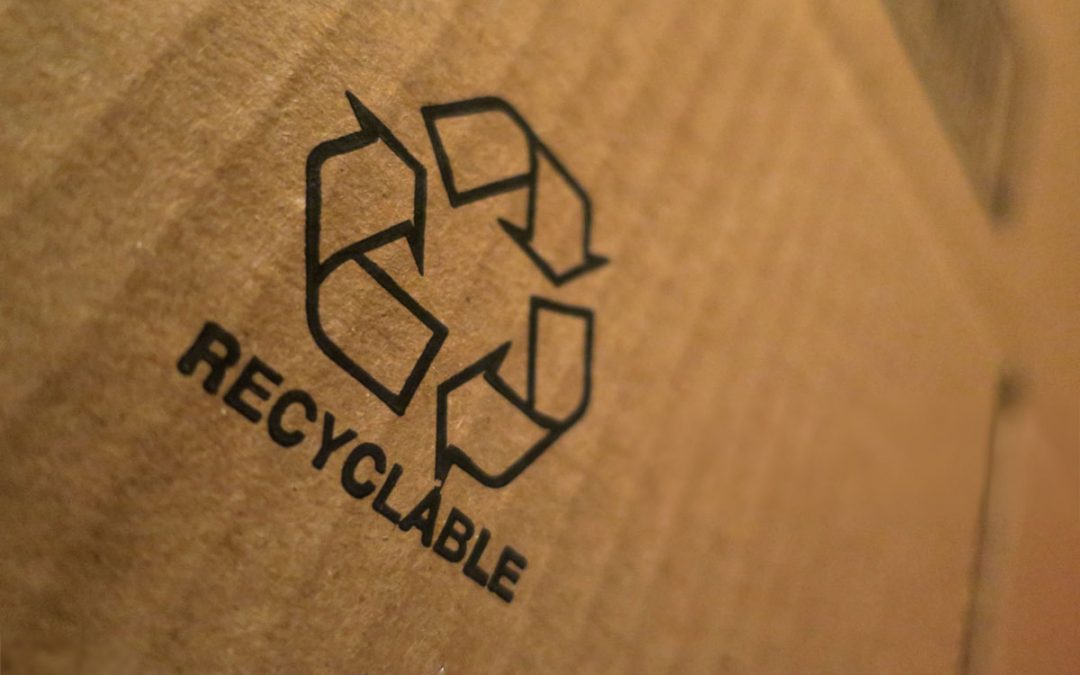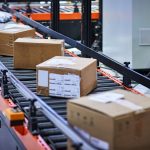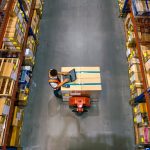1. Introduction
In today’s rapidly evolving global landscape, the term “sustainability” has become more than just a buzzword—it’s a necessity. As industries worldwide grapple with the challenges of climate change, dwindling resources, and increasing consumer demand for eco-friendly practices, the logistics sector finds itself at the epicenter of this transformation.
Sustainable logistics, in essence, encapsulates the strategies and practices aimed at making the movement of goods more efficient, eco-friendly, and socially responsible. This shift is not merely about environmental stewardship; it’s about ensuring the longevity and profitability of the logistics industry in an increasingly green-conscious world.
2. The Environmental Impact of Traditional Logistics and solution by NECL
Historically, the logistics sector has been driven by two primary objectives: speed and cost-efficiency. While these remain crucial, the environmental repercussions of traditional logistics practices can no longer be ignored.
Carbon Footprint of Traditional Logistics
There are four main transportation modes to choose from: Road, Air, Ocean, and Rail. Trucks, planes, and ships, primarily powered by fossil fuels, generate tons of CO2 and release it into the atmosphere. As globalization escalates, global trading grows, resulting in more vehicles, planes, and vessels operating to sustain these services. This creates a dilemma for balancing operational needs against environmental concerns.
Modal Shift Transportation
To address this dilemma and to provide eco-friendly logistics services, Nippon Express NEC Logistics Hong Kong offers a modal shift in transportation. This strategy minimizes pollution without significantly impacting efficiency. Our experienced team can arrange shipments to meet specific requirements while providing high-quality services, utilizing the NX Group’s worldwide network. This approach allows us to gather information from our overseas agents to offer the most suitable routes and transportation modes tailored to your needs.

3.Sustainable Packaging solution by Nittsu NEC Logistics
At Nittsu NEC Logistics, we do more than just reduce CO2 emissions; we are experts in a variety of product characteristics. Based on the nature of products and their transportation modes, we can recommend suitable packing materials that are both high-quality and environmentally friendly, thereby reducing material usage and saving on costs.
- Impact of Packing Materials In the logistics industry, a diverse array of packing materials is utilized. For instance, to safeguard against damages during transport, materials like air cushions and spacers are used to fill voids within packages. However, these materials are often single-use and non-biodegradable, potentially harming the environment. Furthermore, the reliance on non-reusable materials for every shipment can become increasingly expensive as raw material costs rise.
- Comprehensive Packaging Solutions by Nittsu NEC Logistics
Nittsu NEC Logistics offers a comprehensive packaging solution that includes everything from material design and prototype production to material evaluation and supply, all adhering to the ISO 9001 quality standard. Our facilities in Japan boast ISTA-certified evaluation testing laboratories for cargo packing, which are not commonly found in other companies. Our equipment is capable of performing a wide range of tests—shock, vibration, drop tests, as well as constant temperature and humidity tests—all within a single testing center. Additionally, we can customize testing criteria and accuracy settings to align with product characteristics and choose the most suitable materials to prevent any incidents. Our packaging solutions are designed to withstand the rigors of transportation and storage. With our comprehensive evaluations, we assure you that your shipments will be delivered safely and intact.

- ISO (International Organization for Standardization)
- ISTA (International Safe Transit Association)
4. Sustainable Shipping Options for a Greener Import
International trade and imports are integral to the global economy. However, the movement of goods across borders often involves long journeys, multiple modes of transportation, and significant environmental impact. Adopting sustainable shipping options is crucial for a greener import process.
- Choosing the Right Freight Mode: Different modes of transportation have varying environmental footprints. For instance, rail transport is often eco-friendlier than road transport, while shipping by sea has a lower carbon footprint than air freight. Companies need to evaluate their shipping needs and choose modes that align with sustainability goals.
- Proximity in Distribution Locations: Centralizing distribution hubs in strategic locations can significantly reduce the distance goods need to travel. By placing these hubs closer to major markets, companies can cut down on transportation time and emissions.
- The Role of Sustainable Packaging in Imports: As discussed in the previous section, sustainable packaging plays a pivotal role in reducing the environmental impact of shipping. For imports, this is even more crucial, given the long distances involved. Using recyclable and lightweight packaging materials can significantly reduce the carbon footprint of imported goods.
- Collaborations for a Greener Future: Importers and exporters can play a significant role in promoting sustainability by collaborating with eco-conscious logistics providers. By choosing partners who prioritize green practices, companies can ensure that their goods are transported in the most environmentally friendly manner possible.

5. Why Sustainability Matters to Shippers
In today’s globalized world, shippers play a pivotal role in connecting producers with consumers. As the intermediaries responsible for the movement of goods, their practices have a profound impact on the environment. But why should shippers prioritize sustainability?
- Long-Term Business Viability: While sustainable practices might require initial investments, they ensure long-term business success. As regulations tighten and consumers become more eco-conscious, companies that have already adopted green practices will be better positioned in the market.
- Meeting Consumer Demand: Modern consumers are not just concerned about the quality and price of products; they also care about the environmental footprint of their purchases. Shippers that prioritize sustainability can leverage this as a unique selling proposition, attracting a growing segment of eco-conscious consumers.
- Cost Savings: Contrary to popular belief, sustainable shipping can lead to significant cost savings. Efficient routes, reduced fuel consumption, and sustainable packaging can all lead to reduced operational costs in the long run.
6. The Role of Sustainable Development Goals (SDGs) in Logistics
The United Nations’ Sustainable Development Goals (SDGs) provide a global blueprint for a better and more sustainable future. These 17 interconnected goals address various global challenges, including poverty, inequality, and environmental degradation.
- Relevance to the Logistics Industry: Several SDGs directly relate to the logistics sector. For instance, Goal 9 emphasizes industry innovation and infrastructure, while Goal 13 focuses on climate action. By aligning their operations with these goals, logistics companies can contribute to global sustainability efforts.
- Business Models Aligned with SDGs: Progressive companies are integrating SDGs into their business models. This not only promotes sustainability but also opens up new business opportunities. For instance, a logistics company focusing on reducing its carbon footprint (aligned with Goal 13) might invest in electric vehicles, tapping into a growing market segment.
7. Conclusion
As the world contends with unprecedented environmental challenges, the logistics sector has a unique opportunity to lead the charge. By implementing sustainable practices, aligning with global initiatives like the Sustainable Development Goals (SDGs), and prioritizing environmental stewardship, the industry can secure its long-term prosperity and contribute to a more sustainable future.
Our commitment to sustainable logistics includes adopting modal shift transportation to enhance efficiency while also aiming to reduce harmful gas emissions. In the realm of waste reduction, we offer eco-friendly packaging solutions complemented by thorough evaluations to ensure the safe and cost-effective transportation of goods. We invite you to contact us to elevate your business to the next level.





